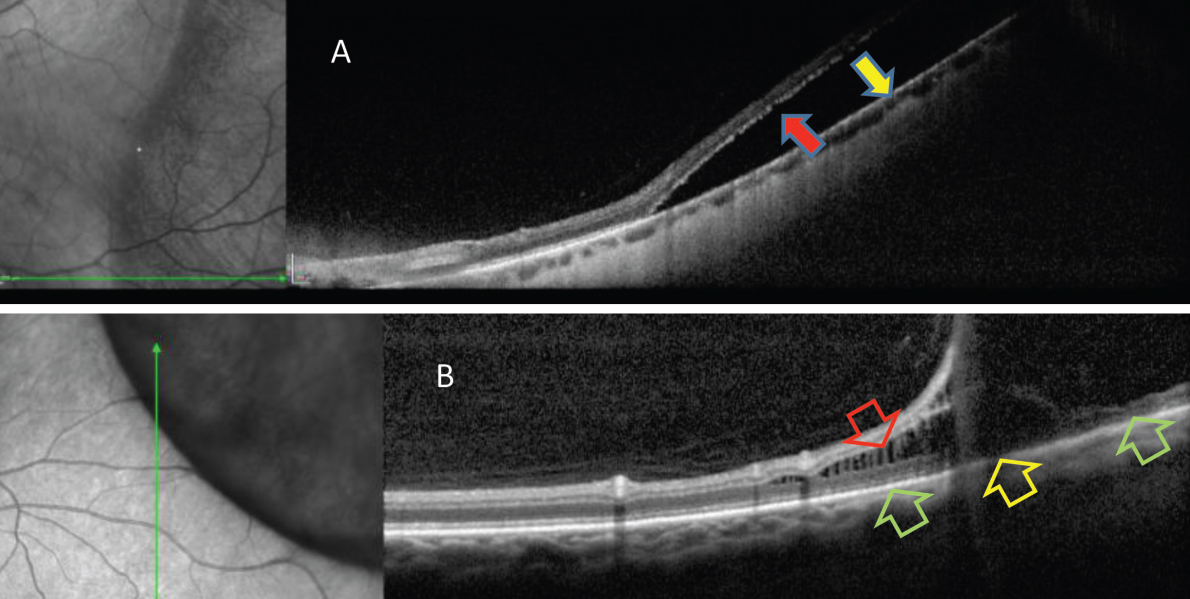 |
Be sure to closely monitor patients with thicker baseline choroids who undergo PPV. Photo: Mohammad Rafieetary, OD. Click image to enlarge. |
Research has suggested a link between choroidal thickness and recurrent retinal detachment, as the choroid plays a crucial role in the health and stability of the retina as its sole provider of oxygen and nutrients. Now, a recent study found evidence proposing that a thicker choroid in patients with prior retinal detachment could indicate an increased risk of redetachment.
Included in the study were 93 patients who underwent pars plana vitrectomy (PPV) for rhegmatogenous retinal detachment repair. The researchers evaluated the subfoveal choroidal thickness and anatomical success in eyes at baseline and at both three and six months post-op.
The surgeries had an 87.1% successful retinal attachment rate. Twelve of the patients (13%) had a recurrent detachment during the follow-up period (group two), while the remaining 81 (87%) did not (group one). All patients who experienced redetachment had it happen within the first three months post-op. Despite patients in both groups having similar visual acuity before surgery, the post-op evaluation showed something different: after PPV, patients in group two experienced a decrease in visual acuity, whereas group one patients saw an improvement.
The key finding of this study was that patients in group two presented with greater subfoveal choroidal thickness at baseline than those in group one, suggesting that this may be a clinical marker to identify patients undergoing PPV who have a greater risk of RRD recurrence. The researchers also noted that both groups demonstrated thinning in the subfoveal choroidal thickness throughout follow-up.
While the data did show PPV to be a highly effective treatment for retinal detachment, the researchers hypothesized a few reasons why the patients in this study with thicker choroids experienced greater rates of recurrence.
“A thickened choroid may disrupt nourishment from the choroid to the retina, or a change in metabolic state may result in choroidal congestion, and for unknown reasons, adherence to the retinal pigment epithelium is reduced in thickened choroids compared with normal choroids,” they explain.
Continuing to investigate potential factors that contribute to post-op redetachment will help identify patients in need of closer monitoring or alternative or adjunctive options for treatment.
Triviski O, Eremenko R, Au A, et al. The association of choroidal thickness with rhegmatogenous retinal detachment repair. Retina. February 25, 2022. [Epub ahead of print]. |

